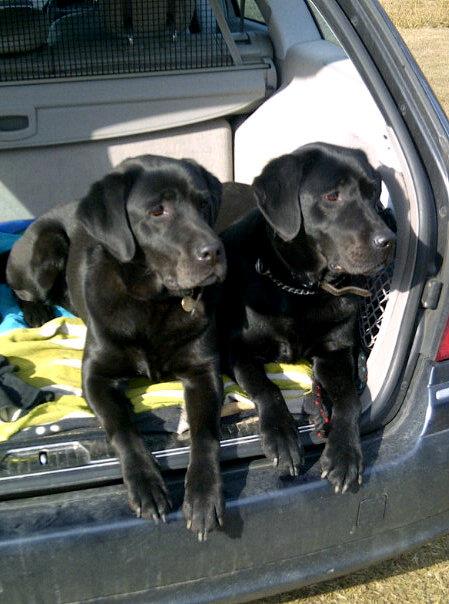
How to Relieve my Dog’s Travel Sickness?
We have all had experience of someone we know suffering from motion sickness.
Some children suffer travel sickness through their early years and yes, it is true that dogs can also suffer from motion sickness making them feel nauseous, uneasy and stressed. The result of this can mean your dog is sick in the back of your car (and not what you or your dog need on a long journey).
What Causes My Dog’s Travel Sickness?

Most often seen in younger dogs and puppies one of the main causes of travel sickness is due to the ear structures used for balance not being fully developed. Most dogs are likely to grow out of carsickness but not all of them will. Some dogs may continue to suffer symptoms well into adulthood, even after their ear structures have fully developed.
Early visits to the vet as a puppy or other bad experiences can mean higher stress levels and consequently feelings of sickness that may continue as they grow older.
How do I Spot Dog Travel Sickness?
There are symptoms to look for that are a good indicator that your dog is experiencing travel sickness. These can be: -
- Drowsiness, listlessness
- Uncontrollable drooling
- Yawning
- Smacking or licking of lips
- Excessive whining
How Can I Minimise My Dog’s Symptoms?
In order to help minimise the symptoms your dog is experiencing you can try to improve your dog’s journey by making the experience more comfortable.
Familiarise Your dog may benefit from getting used to being around the car. If your dog is comfortable then start getting into the car without the engine running initially. Starting the engine is the next step and you might do this a few times before taking some short journeys. Spending time going through this process could make all the difference.
Vehicle Temperature Control the temperature in your vehicle, and at the same time keep it well- ventilated, balancing the inside and outside air pressure will reduce nausea and feelings of discomfort.

Seat Belt (For Your Dog) It is better if your dog faces forward while the car is moving rather than looking out of the side windows (more likely to bring on travel sickness). To help achieve this there are dog seat belts and car safety harnesses designed to keep dogs in place while a car is in motion.
Travel Crate A travel crate may well keep your dog calm and comfortable during the car journey reducing stress levels. Bear in mind that some dogs react better in a crate environment than others. Make sure the crate is well-ventilated and that your dog has room to turn around and lie down comfortably. The crate should be secured safely in your vehicle.
Food Limit the amount of food you give your dog on the day of the journey before you travel. A small sugary treat (jellybean or something similar) just before setting off may help reduce nausea. Do not give anything that may be toxic for your dog such as chocolate or any treats containing xylitol.

Supplement If your dog does not overcome travel sickness, then there are supplements that may help.
Here at Treat Your Dog we have chosen to offer the Pet Wellbeing range of holistic, all-natural products, designed to support your dog's overall health and wellness, since 2001. Dog Wellbeing Stress Gold for High Stress Situations works quickly when your pet needs it. This herbal combination naturally supports the central nervous system in times of nervous tension or heightened states of emotion.
You can contact us for more information via info@treatyourdog.co.uk or you might like to tell us about some of those trips you've been on with your dog...


